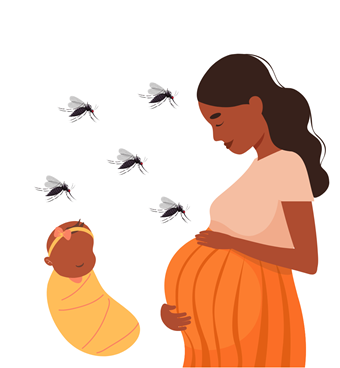Outbreaks of Zika virus disease have been noted since 2007; however, the unprecedented epidemics in the Western Pacific and then the region of the Americas have highlighted the significant public impact of this virus, notably through causation of congenital microcephaly and neurodevelopmental disorders after infection in pregnancy, increased Guillain-Barré syndrome and other neurological manifestations. This resulted in the declaration by the World Health Organization (WHO) of a Public Health Emergency of International Concern (PHEIC) from February to November 2016. Cases of Zika virus disease globally declined from 2017 onwards; however, Zika virus transmission has been detected in 89 countries and persists at low levels with intermittent incidence increases in several countries in the Americas and in other endemic regions.
It is critical to determine where the public health and clinical communities stand on the synthesis of data gathered during and after the PHEIC, how transmission should be tracked epidemiologically with a view to preparedness and early response, and what tools we have at our disposal as countermeasures against infection, transmission, and disease.
This webinar gave an overview of the current global Zika situation and the speakers discussed the latest evidence available and lessons learned from the PHEIC that are key for preparedness.
Video recordings
Human interpretation:
AI interpretation:
Speakers:
- Dr Sylvie Briand, Director, Epidemic and Pandemic Preparedness and Prevention, WHO
- Dr Maria Van Kerkhove, Unit Head, Emerging Diseases and Zoonoses Unit, WHO
- Dr Diana Rojas Alvarez, Technical Lead, Zika and chikungunya, Emerging Diseases and Zoonoses Unit, WHO
- Dr Sudath Samaraweera, Regional Consultant on Arbovirus, WHO Regional Office for South-East Asia
- Dr Judith Wong, Director, Microbiology and Molecular Epidemiology, National Environment Agency, Singapore
- Ms Thais Dos Santos, Advisor on Surveillance and Control of Arboviral Diseases Neglected, Tropical and Vector-Borne Diseases Unit, Pan-American Health Organization
- Dr Ricardo Ximenes, Epidemiologist and Professor of Tropical Medicine, Federal University of Pernambuco, Recife, Brazil
Presentation:
Questions & Answers:
A number of attendees asked questions during the webinar that we ran out of time to answer. WHO Zika virus technical team have kindly provided responses to the most relevant questions below.
Disclaimer: Some of the video recordings available on this website (Chinese, Hindi and Russian) utilize AI-based language interpretation. Although we aim for accuracy, these interpretations may not completely reflect the nuances and complexities inherent in the original content. The World Health Organization (WHO) disclaims responsibility for any errors, omissions, or misrepresentations that may arise from these translations. The official record of any event will remain the original English version. For critical or complex information, viewers are advised to consult the original content or seek the assistance of a human interpreter.

